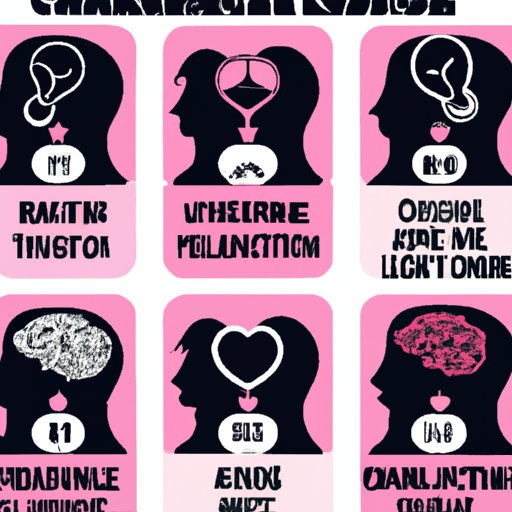
Introduction
At its core, love is one of the most essential and universal human experiences. Almost every culture has songs, stories, and myths that celebrate it. Yet, despite how ubiquitous it is, love can also be incredibly complex and challenging. Many people struggle with understanding what it means to love and how to create healthy, fulfilling relationships. In this article, we’ll explore the different forms of love, how it affects our brain and body, and offer tips for navigating the ups and downs of love.
5 Surprising Ways Love Affects Our Brain Chemistry
When we experience love, our brain goes through a series of chemical changes that can impact everything from our mood to our long-term health. The rush of dopamine and oxytocin associated with falling in love can create feelings of euphoria and pleasure. Meanwhile, levels of the stress hormone cortisol decrease. Studies have shown that these chemical changes are associated with lower blood pressure, reduced anxiety, and improved immune function.
However, love can also have negative impacts on the brain and body. For example, the intense emotional pain of heartbreak can trigger the same areas in the brain that react to physical pain.
The Different Types of Love: Exploring Romantic, Familial, and Platonic Love
Love can take on many different forms, each with its own unique set of features and challenges. Romantic love is often characterized by attraction, intimacy, and sexual desire. Familial love is based on the bonds between family members, while platonic love refers to non-sexual affection between friends. While these are distinct forms of love, it’s not uncommon for them to intersect or overlap. For example, a romantic partner can also be a close friend who feels like family.
Navigating the Emotional Rollercoaster of Love: Tips for Maintaining a Healthy Relationship
Even the most loving relationships can go through difficult patches. Communication, respect, and trust are essential components of any healthy partnership. It’s also important to cultivate habits of kindness, generosity, and forgiveness to create a loving, supportive environment. Practicing self-care, such as getting enough sleep, eating well, and engaging in stress-reducing activities, can also help you to handle emotional challenges more effectively.
From Infatuation to Intimacy: Understanding the Evolution of Love
Love is not one static emotion, but rather a constantly evolving process. In the early stage of infatuation, we often experience intense emotion, it turns into deeper feelings of intimacy and companionship as the relationship progresses. While couples often encounter challenges at each stage, understanding the patterns of love can help to create a more enduring and satisfying relationship. Successful couples draw on their ability to communicate, compromise, and empathize with one another.
Why Love Hurts: Exploring Heartbreak and How to Manage the Pain
Love can be one of the most joyful experiences in life, but it can also be incredibly painful when things don’t go as planned. Heartbreak can be the result of many different factors, such as rejection, loss, or betrayal. Coping with heartbreak can be difficult and may require external support from friends or a mental health professional. Self-care, such as developing healthy coping strategies and doing things you enjoy, can help ease the pain and regain confidence in oneself.
The Role of Communication in Successful Relationships: Lessons from Love Stories
Communication is one of the most critical factors in any successful relationship. In order to build a healthy and mutually supportive partnership, couples must be able to communicate their needs, desires, and feelings in an open and non-judgmental way. Examples of communication in real or fictional relationships can provide valuable lessons on how to strengthen our own relationships. These stories often emphasize the importance of listening, empathy, and compromise.
Conclusion
Love can be simultaneously one of the most joyous and difficult experiences we face. It affects our brain, our body, and our emotions. However, by practicing the right habits, learning from past experiences, and seeking external support when necessary, we can create loving and fulfilling relationships in all forms of love. Resources like counseling, personal growth books, and online communities can help us in achieving this goal.





